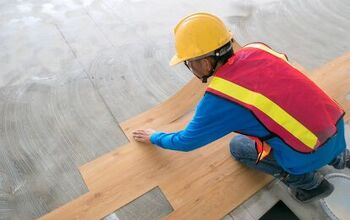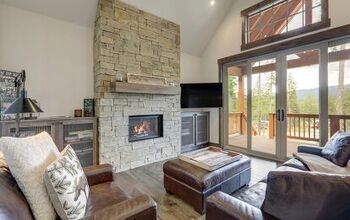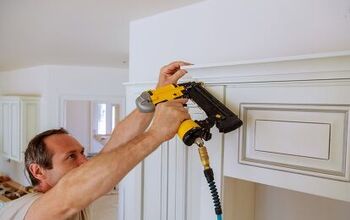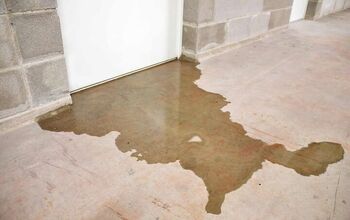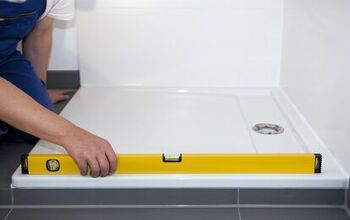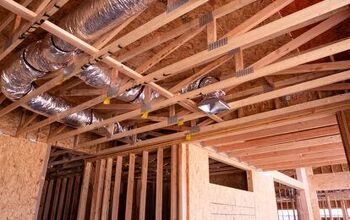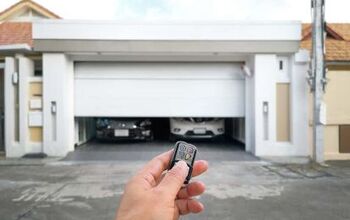Eight Reasons Downsizing Might Cost You More Than You Think

The kids have left the nest, or you’re tired of taking care of a huge house — whatever the reason, you want to downsize. You figure it will be easier and less expensive to live in a smaller place, but that isn’t always the case. Before you move into a smaller home, do your research, because downsizing might cost you more than you think.
Selling a home of any size comes with fees, and depending on where you move to, your new home might cost more. Since you’re moving into a smaller house, your existing furniture may not fit, so getting new stuff is another expense. You may also pay a price emotionally when you downsize, missing the extra space and dealing with the stress of major decluttering.
Downsizing certainly has many benefits, but only if you take the time to prepare properly and decide it’s the right move for you. Therefore, review these potential pitfalls of downsizing before you take the plunge.
Eight Reasons Why Downsizing May Be Costly
1. Selling A House Isn’t Cheap (No Matter What Size It Is)
Selling a house and buying a new one is an expensive process. If you begin the journey without planning for the financial aspects, you may end up in a difficult situation. When you sell, you’ll typically pay real estate agent commissions, which are usually about five to six percent of your home’s sale price.
You’ll also need to pay for any necessary repairs, upgrades, or staging before listing your home. Additionally, there are closing costs of roughly two to five percent of the purchase price of your new place and moving expenses.
2. Don’t Assume A Smaller Home Means A Lower Payment
Smaller properties don’t always come with a smaller price tag. For one thing, the location of your new home is a big factor in the cost. For example, are you moving from West Virginia, one of the cheapest places for a house in the US, to Hawaii? That’s a big difference!
Plus, it’s not just about the cost of the house. How much are homeowners’ insurance rates and property taxes where you’re moving to? Do you need any additional insurance, like earthquake coverage or wind and hail? If you’re heading somewhere with astronomical property taxes or insurance, these things could offset any savings you get from a lower home price.
Also, many people who decide to downsize often choose a place with an HOA, loving the idea of no exterior maintenance and various amenities. However, those HOA fees can add up quickly and pump up your monthly payment.
Talk to people in the community about the HOA fees and ask about how often they increase and how it is to work with the HOA. Many times, an HOA comes with restrictions that you may not want to deal with, like not allowing garden flags or holiday decorations. Make sure you’re prepared to give up the control you may be used to with your current home.
3. You Might Need To Buy New Furniture Or Pay For Storage
It’s a good bet that if you’re moving into a smaller home, your existing furniture isn’t going to fit (at least not well). Therefore, you can bank on buying some new pieces, especially when it comes to larger-scale items like beds, couches, and dining tables. Some good options for smaller spaces are multi-functional pieces, items with low-profile silhouettes, and built-ins.
Also, if you’re facing a struggle when it comes to decluttering or letting go of your belongings, you might add a storage unit to your monthly bills. A basic 5’ by 10’ unit can cost you around $75 to $150 a month.
You could look at ways to maximize space in your storage unit, but if you’re not ready to let go of your stuff, it might not be time to downsize.
4. You Can’t Bank On Lower Utility Costs
Yes, a smaller home usually means you’ll pay less on things like electricity, AC, and other utility costs. However, it depends on the home. For example, if you’re moving into an older home, poor insulation, old windows, or an outdated HVAC system could mean higher utility costs.
Or, what if you move to a city with a more extreme climate? This scenario could also lead to paying more for certain utilities. Therefore, do your research when planning your move, and make sure to tweak your budget accordingly.
5. Renovation Costs And Making Your Home Accessible
Do you need to do anything to your new home to make it more accessible for your next season of life? Do you need to add ramps, grab bars, widen doorways, or make any other changes for senior living? Are there any repairs you need to make if you’re purchasing an older home?
Will you need to hire professionals to handle some of the things you once did yourself, like lawn care or house cleaning? If so, figure these costs into your new budget to determine your true cost of downsizing.
6. Downsizing Can Drain More Than Your Wallet
Downsizing doesn’t just have a potential for high financial costs. It can also cost you plenty emotionally and in terms of time. Decluttering is a big part of downsizing, and it’s often a difficult process for many people.
This step can be especially daunting if you’re moving from a long-time residence or family home. You also face adapting to a new lifestyle, and if you're moving somewhere with a high influx of new residents, there are other potential challenges.
For example, you need to find new doctors. Will there be adequate access to healthcare, or will you be waiting months to get a doctor’s appointment? Is your new home near a hospital? These are all things you need to think about since you may need to start over, unless you’re moving locally.
7. Lifestyle Creep Can Still Happen
Moving to a smaller home gives you the idea that you’ll save a bunch of money. Perhaps there’s a lower mortgage payment, and you also pay less on maintenance, lawn care, etc. Even if you aren’t saving as much as you think (considering the previous points), it may still feel like you are.
So what happens? You start planning all the hobbies, travel, and other things you now have time and money to do. Of course, you may now actually have more wiggle room in your budget for these things, however, if you were downsizing with the hope of saving money, you may not save as much as you planned to.
8. The Painful Cost Of Regret
One of the biggest costs you might face when downsizing is paying the price of regret. Suddenly, the space you thought you could live without becomes glaringly absent.
You don't have a spare bedroom for the grandkids, your home office is gone, so now you’re doubled up on the kitchen table. Your workshop is a thing of the past, so you have to rent a space to keep up your hobby.
You can no longer host large family gatherings. It’s impossible to find a room where you can be alone for a couple of hours. You start to wonder, 'What did I do?'
To avoid this frustrating feeling, take your time to think about whether or not downsizing is what you really want to do. Consider closing off several rooms in your home for a few months before you list it and live as if they don’t exist.
Make Sure Downsizing Works For Your Budget
The biggest way to make sure downsizing saves you money instead of costing you more is to plan. Start early and be realistic about the fees associated with selling and buying a home and moving. Tour multiple homes, even if you fall in love with the first one, and consider extras like utility costs and HOA fees.
Put together a revised budget based on your potential new living situation and see if it allows you to do the things you want to do. Live in only two or three rooms in your current home for a few months, and start decluttering early to see if you’re really ready to make the change.
Most importantly, don’t just look at square footage. Think about how you want your life to look and make sure you find a house that makes that happen. Your new home may not need to fit as much stuff, but it certainly needs to fit your lifestyle, whatever that looks like for you.
Related Guides:

Stacy Randall is a wife, mother, and freelance writer from NOLA that has always had a love for DIY projects, home organization, and making spaces beautiful. Together with her husband, she has been spending the last several years lovingly renovating her grandparent's former home, making it their own and learning a lot about life along the way.
More by Stacy Randall










![10 Best Cordless Leaf Blowers – [2022 Reviews & Ultimate Guide]](https://cdn-fastly.upgradedhome.com/media/2023/07/31/9070789/10-best-cordless-leaf-blowers-2022-reviews-ultimate-guide.jpg?size=350x220)
